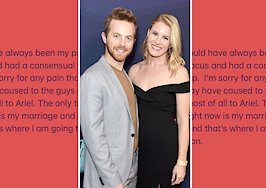Join industry visionaries Pete Flint, Spencer Rascoff, Ryan Serhant and more at Inman Connect New York, Jan. 24-26. Punch your ticket to the future by joining the smartest people in real estate at this must-attend event. Register here.
Although you may choose to outsource some of that writing, you may choose to do some of it yourself, either to save money or simply because you prefer the authenticity and immediacy that comes with creating your own content. If so, here are the types of writing you’ll need to nail down to keep your real estate business thriving.
Some of these will be big projects you’ll do once, then refresh and renew regularly. Others will be projects you’ll return to again and again.
It would be impossible to provide all of the ins and outs of each type of writing in one article, but I’ll give you my best tips and tricks for each type of writing so that you’ll come away feeling like you have a handle on them.
1. Property descriptions
Property descriptions are first on the list because they’re the type of writing that real estate agents run into repeatedly throughout their careers, and they’re also the type that, in my experience, many agents dread the most.
When we talk about property descriptions, we’re primarily talking about your MLS description, along with any brochure or flyer copy, social media copy and other types of writing you’ll do to get your listing sold.
Here are a couple of challenges you’ll encounter when you’re writing property descriptions:
- In some areas, the MLS limits your character count, so you may have as few as 400-500 characters (including spaces) to describe even the most elaborate luxury home or compound.
- In other areas, there is no limit on characters, so you may find yourself droning on and on, unsure how much to say and feeling that you haven’t done your job if you don’t mention every room, window, toilet and tree on the property.
The best antidote to this is to put together a format for your property descriptions. Know what you want to cover and create a framework for it.
You may want to start at the front with the curb appeal and work your way back to the outdoor space. You may want to start with the “wow!” factor and work your way out to the neighborhood.
Whatever you choose, by adding some order and logic to the way you develop your property descriptions, you’ll streamline their creation and make them less difficult to write.
Need more? Check out: 7 listing description mistakes you’re probably making.
2. Bios
Why is it so difficult to write a bio? Both brand new agents and veteran agents come to me unhappy with their own attempts. Well, let me tell you my dirty little secret: I outsourced the writing of my own bio, as well.
Why? Because it’s hard to talk about yourself. It’s hard to put your own accomplishments into perspective. It’s hard to look at your story and pick out the highlights and see how different parts of it fit together.
I frequently have folks reach out to me when they get a copy of their bio and say, “Who is that?” “Is that really me?” That’s because they’re used to thinking of themselves in a certain way, and the bio gives them an opportunity to recontextualize themselves and, in a way, meet themselves all over again for the first time.
If you’re having trouble putting your thoughts together for a bio, try telling your story to someone else. Ask them to jot down the highlights and the elements that stuck out to them as the most impressive and the most important. You might be surprised to find out which parts of your journey resonate the most with your listener.
Want some great examples? 9 superior agent bios — and how to reverse engineer yours.
3. Website content
You’ll want your website to include rich, evergreen content and plenty of it, with keywords that will let Google know what markets and niches you serve. You’ll also need to make a decision about whether you’ll use your page on your brokerage’s site or whether you’ll put the time, effort and money into developing your own.
If you decide to go ahead and create your own website, you’ll need to talk to your site builder about their experience creating content designed for real estate. Although they may create visually stunning sites, they may struggle to create written content that is industry-specific or that speaks to the process of buying and selling a home.
This is especially true if you work in a highly specialized niche. In that case, you will want to help them craft appropriate language or work with a real estate copywriter to do so.
If you have a certification, designation or are a member of a professional organization as part of your work with that niche, you may want to reach out to them and see if they have required language or a logo that you should include on your website.
It is essential that you do not copy and paste content from someone else’s website or from your broker’s website. If you purchase a ready-made “website-in-a-box” from a website builder, you need to change up the boilerplate copy that is included there, especially if you are concerned with search engine optimization (SEO) and your Google ranking.
Finally, don’t worry too much about having a huge number of website pages, especially at first. Have a solid homepage, a page for buyers, one for sellers, another if you serve a specific niche and a contact page.
Be sure that your footer includes all of your state’s required disclosures, including your brokerage, contact information and license number, along with links to your social media platforms.
4. Core content
Core content is the type of content you create on an ongoing basis. This might be your blog posts, videos or podcast episodes. Consistent content creation helps you to build SEO when it’s housed on your website, and it helps you to raise your profile and increase your digital footprint.
When shared on social media, your core content gives you greater authority and helps you to add value for your fans and followers. It helps you to come across as someone who’s contributing rather than advertising so that you’re part of a community.
Remember to repurpose your content so that you get even more value out of each topic. Turn a blog post into the basis for a video script or episode flow for a podcast. Break up the blog post into parts, and turn each of those parts into separate posts that you then repurpose in new ways with added details and new angles.
Looking for topics for your content? Check out 500+ content ideas for your real estate business.
5. Social media content
Social media goes beyond sharing your latest listing on Facebook. It’s about a coordinated way of sharing your content; interacting with your online community; and generating engagement with clients, colleagues, leads and followers.
Use social media to:
- Increase brand recognition
- Showcase your local market
- Connect with local business owners (and their audiences)
- Distribute your core content
- Educate buyers and sellers in your area and beyond
- Build a referral network
- Take on a leadership role in the industry
- And, of course, share your latest listing
There’s no limit to what you can do on social media. You may find your brand going in new and unexpected directions simply because the social media landscape is always evolving.
To get the most for your time and effort on social media, here are a few best practices to keep in mind:
- You don’t have to be everywhere on social media. Choose a platform or two that you can reasonably commit to, and be consistent there rather than trying to be everywhere at once.
- If you choose to pre-schedule your social media posts, keep an eye on them to make sure that you don’t inadvertently drop an outdated or accidentally offensive post that was scheduled days or even weeks in advance and then forgotten.
- Keep in mind Gary Vaynerchuk’s formula: Jab, Jab, Jab, Right Hook. Don’t spend all of your time on social media begging for business. Give value (the jab) over and over, only occasionally coming in with the ask (right hook).
- Put together a coherent brand identity, and use it across all of your social media platforms. Don’t style yourself as @joetherealtor, @joeyindallas and @yourdallasrealtor with different logos and different colors across different social media platforms. Strive for consistency so that followers can find you wherever you post.
Want some winning examples to follow? Need a little Insta-ration? 22 must-follows.
6. Marketing materials
Whether you’re putting together a mailer to send out to your geographic farm, an email blast for your sphere of influence, or a flyer for your next open house, it’s important to create memorable and effective marketing materials. After all, in many cases, these are the items that leads will hold onto, stuff in a drawer, stick to the fridge or keep in their purse, then dig out in a few months when it’s time to give you a call.
Although the old-fashioned hard sell might be your first instinct, here too you’ll find that a value-added approach is more effective. Instead of singing your own praises, make it all about the potential client — let them know why working with you will help solve their problems, meet their needs and soothe their pain points.
Don’t forget to include a solid call to action (CTA) on your marketing materials.
CTAs might include:
- Call me today for your property equity evaluation.
- Contact me to discuss the value-added improvement today’s buyers are looking for.
- Let me buy you a cup of coffee and talk to you about what your home is worth in today’s market.
- I have buyers looking for a home in your area. Please give me a call at (###-###-####).
- I’d like to introduce you to my trusted lender to discuss your financing options in today’s market. Please text me if you’re interested.
Remember, great marketing copy needs to be beautifully accurate. Check out The real estate agent’s guide to grammar.
7. Correspondence
There is nothing more lovely, more winning and more heartfelt than a handwritten note. Personal and meaningful, it cuts right through the junk mail and catalogs and goes straight to the recipient’s heart.
Whether you’re writing the perfect thank-you note or sending an inquiry to members of your geographic farm, you can get their attention when you send handwritten correspondence. Yet too often, people dread the task of writing handwritten notes, finding them tedious and a chore to be avoided.
Instead of saving your thank-you notes and sending a stack at the holidays or special occasions, send one or two a day every workday. That way, they’ll only take a few minutes of your time, and they’ll be simple to put together.
Send handwritten notes for simple things:
- Congratulate someone on a personal achievement.
- Congratulate someone’s child for a school award or college admission.
- Congratulate a couple on their anniversary.
- Congratulate a buyer on their home closing anniversary.
- Thank a buyer or seller for their business after the closing.
- Thank a referral source upon the initial referral and after the closing.
- Thank a colleague for a favor.
- Thank the colleague on the other side of a transaction after the closing.
- Thank agents or investors who submitted offers.
- Thank your mentor for a piece of advice that recently came in handy.
- Thank a fellow entrepreneur for a professional referral.
You never know when a handwritten note will become part of a longer conversation that leads to business, whether now or in the future.
There are so many things to be thankful for when you start looking for them. The best thing about sending thank-you notes is the attitude of gratitude you’ll cultivate once you begin this practice.
Need help getting your thoughts together? A guide to writing the perfect handwritten note for real estate.
Christy Murdock is a Realtor, freelance writer, coach and consultant and the owner of Writing Real Estate. She is also the creator of the online course Crafting the Property Description: The Step-by-Step Formula for Reluctant Real Estate Writers. Follow Writing Real Estate on Twitter, Instagram and YouTube.













